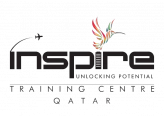Course Description:
This course presents managerial accounting concepts and explains how they apply to specific operations within the hospitality industry.
Objectives:
At the completion of this course, students should be able to:
1. State the purposes, contents, and limitations of the balance sheet, and analyze balance sheets
using both horizontal and vertical analysis.
2. State the purposes, contents, and limitations of the income statement, and analyze income
statements using both horizontal and vertical analysis.
3. Understand and use the most current version of the uniform system of accounts applicable
to the lodging industry.
4. State the purposes, contents, and limitations of the statement ofcash flows (SCF), and
preparean SCF.
5. Use ratio analysis to interpret information reported on financial statements and reports, as
well as understand how the interpretation of ratio results varies among owners, creditors,
and managers.
6. Understand basic cost concepts such as fixed, variable, and mixed costs, as well as calculate
the fixed and variable elements of mixed costs.
7. Perform a breakeven analysis and use cost-volume-profit analysis to determine the revenue
required at any desired profitlevel.
8. Use cost approaches to pricing both rooms and food and beverage items.
9. Fore cast activity levels by using both qualitative and quantitative forecasting methods.
10. Prepare an operations budget and analyze variances of actual results from budgeted plans.
11. Manage a hospitality operation’s cash balances, cash flow, and short-term investments in
securities, as well as manage an operation’s working capital.
12. Implement basic internal control techniques for various accounting functions such as cash
receipts, cash disbursements, accounts receivable, accounts payable, payroll, inventories,
fixed assets, and marketable securities.
13. Use various capital budgeting models such as the accounting rate of return model, payback
model, net present value model, and the internal rate of return model.








